Best alternative to WordPress of 2025
Find other options for your CMS

We list the best alternatives to WordPress, to make it simple and easy to set up and manage a website or blog using website builder software.
WordPress is a powerful website builder which allows even total newbies to quickly build stunning websites, with professional themes and tons of plugins to add just about any feature you like.
But WordPress isn't for everyone. If you don't want to use it, maybe it's not an option for some reason, or you're looking for something even simpler, there are plenty of alternative CMS platforms around.
The best website builders, for instance, are typically far easier to use than WordPress, yet still provide all the tools you need to build a stunning website without the tiniest hint of coding complications or needing to worry about if you have the best WordPress hosting for your website.
With that in mind, here are our top picks of what we feel are the best alternatives to WordPress. We've assessed and compared these options across various aspects, from their ease of use and performance to their learning curve and security features. We evaluated what types and sizes of websites they're best suited to build and their pricing plans, among other things.
We've also reviewed the best WordPress Website Builders.
The best alternatives to WordPress of 2025 in full:
Why you can trust TechRadar
Best alternative to WordPress overall
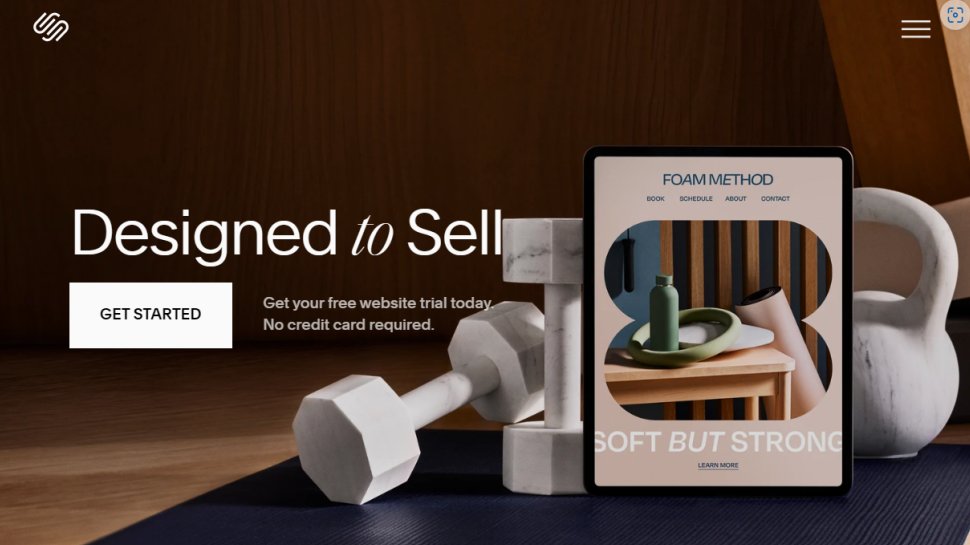
Reasons to buy
Reasons to avoid
Squarespace is a great platform for the most novice in web design to still create an awesome website. Its greatest strength involves its collection of hundreds of awesome and sophisticated themes that are both modern and artistic, and which are constantly being updated and improved. These themes are mobile-friendly and fully responsive.
Moreover, Squarespace’s drag-and-drop website builder is straightforward, making it easier and much simpler to personalize your site. Coding knowledge isn’t required for creating a powerful website, making this service is one of the best platforms available.
You get a free domain for an entire year, after which annual plans starting at $16 are available. Its Extensions marketplace offers e-commerce and accounting apps that you can integrate with your site, as well as add-ons for higher-tier plans.
Overall, Squarespace is one of the best WordPress alternatives out there, proving that their website builder’s intuitive and user-friendly design platform is one of the most admired. It powers over 450,000 websites, and with just a few simple clicks, gives you a chance to reach your audience and power your site to success by providing you with all the tools you need as soon as you choose the perfect template for you.
Read our full Squarespace review.
Best alternative to WordPress for new users
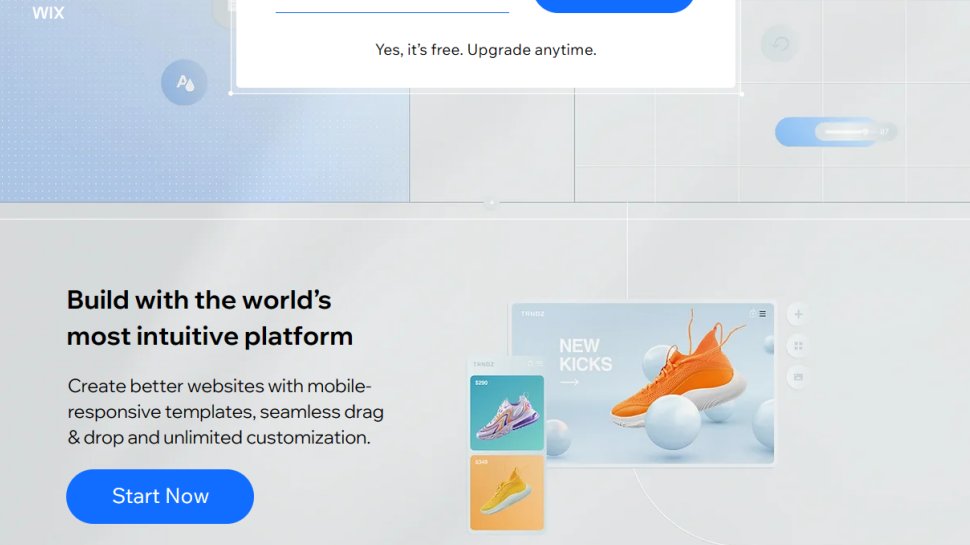
Reasons to buy
Reasons to avoid
Wix may just be the best alternative to most drag-and-drop website builder platforms. This can be attributed to its awesome design features that make website creation a whole lot easier and more intuitive. This service understands the need for a stunning, easy-to-navigate site that can provide a better user experience for viewers.
You can use it for free, and it makes website creation surprisingly easy. With Wix, advanced coding and web development skills aren’t at all necessary. Hosting will be provided by themselves to make the process smoother and more effective. This hosting platform is among the fastest in the market. You can easily create a functional professional-looking website and choose from a massive stockpile of stunning themes.
Getting stuck at any of the steps in building your website is sometimes inevitable, but with their 24/7 support, that won’t be a problem. Wix will give you not just a stunning website but also a domain (for premium plans), a lightning-fast hosting service, storage, and even Google Analytics for the high-end subscription package. There’s a drawback if you opt for the basic or starter plan, which is having to put up with their ads, not to mention an incredibly long domain name. If that doesn’t bother you, you’re all set. If it does, there’s always the premium plan.
Read our full Wix review.
Best alternative to WordPress for ease-of-use
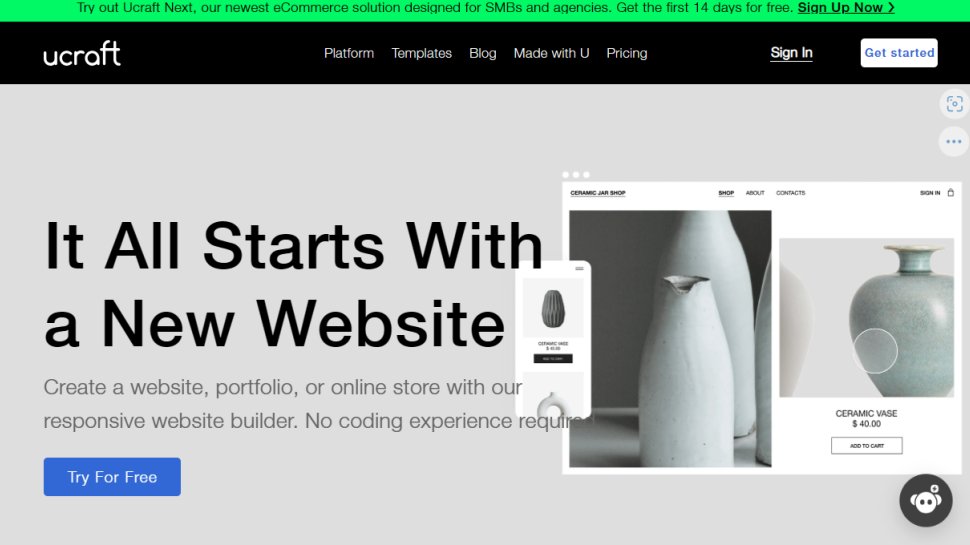
Reasons to buy
Reasons to avoid
Ucraft is easy-to-use, provides a vast number of well-designed templates, and includes a free version with no hidden fees, meaning that whether you’re new to building an online presence or already have experience, it has a variety of plans to suit your needs.
The main interface is easy to navigate and is based around the concept of blocks and elements. The sidebar on the left offers you all the tools you need. Find the object you like, drag it to the main preview section, and you’re done. All elements are fully customisable, with contextual popup tools appearing as you click on an editable section. All available templates offer adaptive settings, so your website automatically adjusts to fit any device, whether it’s seen on a phone, tablet, or desktop.
Two features that particularly stand out are its team management settings, and the multilingual option, all accessed via the Dashboard.
Ucraft includes many valuable features for a website builder - a free option, website domain name, and SSL encryption. The well-designed templates and stock images are a bonus, and its drag and drop interface allows you to create a rich full featured site in little time.
Read our full Ucraft review.
Best scaleable alternative to WordPress
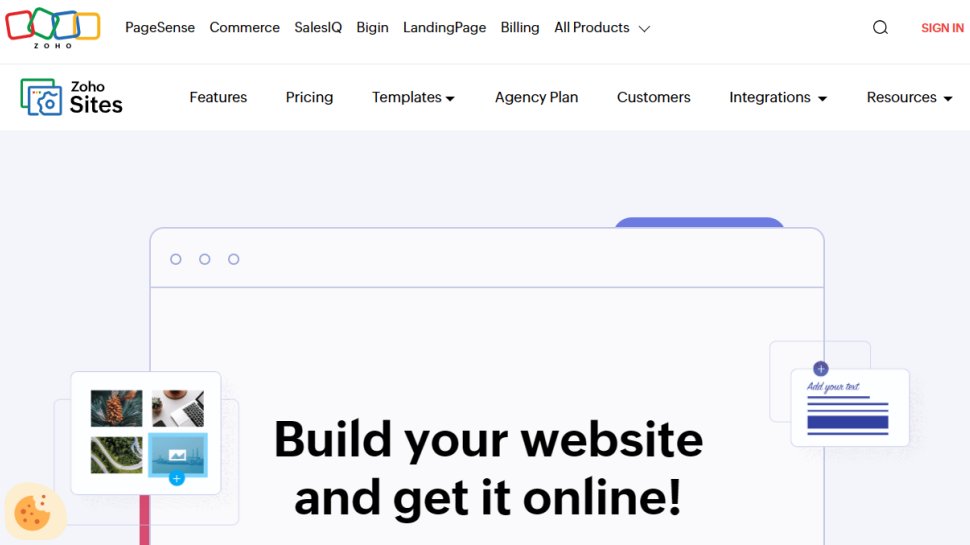
Reasons to buy
Reasons to avoid
Zoho is an interesting website builder with the ability to grow with your needs, whether you require a more complex design, or more bandwidth, pages, or even contributors, all depending on the plan you choose. Best of all, you don’t need to pay to start experimenting with Zoho’s features, as it grants you a 15-day free trial.
The editing process is pretty clean, with the preview of your site taking up nearly all of the page. Mouse over any section however, to see all the elements your page is made up of. Click on one of them to be presented with contextual tools. The Settings option grants you access to numerous features which you can tweak to suit your needs, such as adding a logo or favicon, customise your navigation menu, set up moderation for your comments, or modify your site’s SEO settings. It’s all pretty comprehensive. There’s also a place to check your site’s analytics.
Zoho is a good all round website builder and host. You have many design options at your disposal, and all plans come with a free SSL certificate. Since the Starter plan is so cheap ($5 per month, billed annually), it’s easy to build your website without hurting your budget. Whenever your site needs to grow, Zoho’s Pro plan ($17 per month) provides add-ons so you can keep everything in one place - for additional fees.
Read our full Zoho Website Buildereview
Best affordable alternative to WordPress
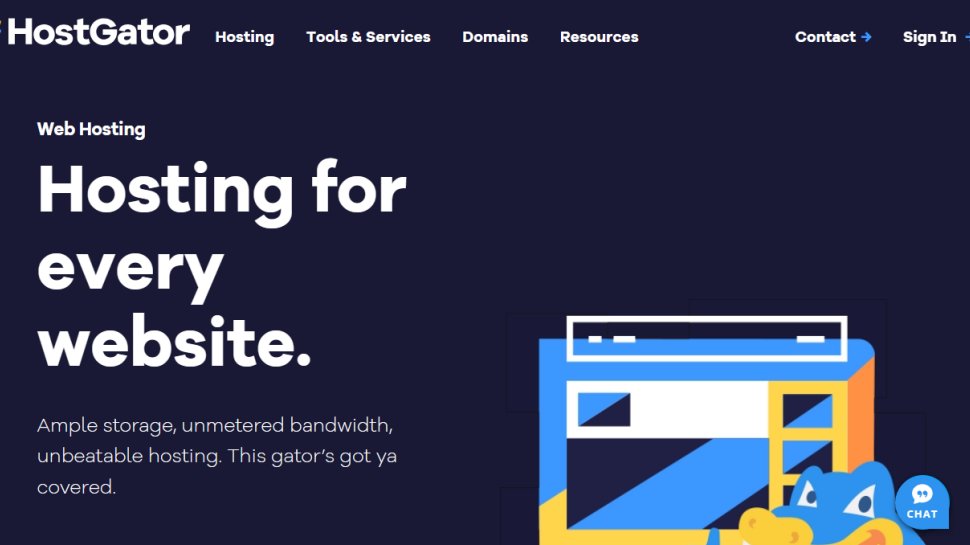
Reasons to buy
Reasons to avoid
Gator is an easy-to-use drag-and-drop website builder owned by top web hosting provider HostGator, and like just about everything else the company offers, it comes with a huge list of features for a very low price.
There are more than 150 stylish, professional and mobile-friendly responsive themes, for instance, covering everything from blogs and simple personal sites to busy web stores.
Customising your site is as easy as dragging and dropping. There's a free stock photo library, excellent social media integration, bundled hosting, free SSL, website analytics to track your visitors, and quality 24/7 support to help you solve any issues.
Gator's e-commerce tools aren't just the minimal options you'll see with other providers, either. You can sell unlimited products, including on Facebook and Instagram. Advanced shipping features include real-time shipping rates, there are multiple secure online payment options, while custom discount codes are available to help boost sales.
Despite all this power, you can still get started with Gator from as little as $3.46 a month, rising to $8.30 if you're building a web store. Looks like a great deal, to us.
Read our full Gator Website Builder review.
We've also listed the best WordPress Hosting Providers.
Best alternative to WordPress FAQs
How to choose the best alternatives to WordPress for you?
The first thing you'll want to consider when choosing the best alternative to WordPress is the type and size of the website you plan to set up. You'll then want to assess the website builder's learning curve and check how easy it is to use the builder's site editor.
The template libraries vary between different builders, so you'll want to select one that matches your design sense. Based on your requirements, you'll want to check whether the builder offers multilingual options, secure encryptions, plenty of storage, speedy hosting, and pricing, among other things.
When an online presence is an absolute must, the best solution is going for easy-to-use, flexible website builders that make website creation easy and fast without compromising quality. The possibilities can be endless as long as users know where to look and what to look for. Finding the best website builder for you is a matter of trying out their features and deciding where you find most comfort in. In the event that your preferred platform isn’t available, going for your second choice isn’t always that bad. Sometimes it can turn out better than you expected.
How we tested the best alternative to WordPress
To test the best alternatives to WordPress accurately, we sign up and create sites using all the website builders that are on our line-up.
We evaluate and compare the builders' learning curve, ease of use, performance, pricing, and template libraries. We examine their security features, storage, and bandwidth and check what types and sizes of websites they're ideal for.
Read how we test, rate, and review products on TechRadar.
Get in touch
- Want to find out about commercial or marketing opportunities? Click here
- Out of date info, errors, complaints or broken links? Give us a nudge
- Got a suggestion for a product or service provider? Message us directly
- You've reached the end of the page. Jump back up to the top ^
Are you a pro? Subscribe to our newsletter
Sign up to the TechRadar Pro newsletter to get all the top news, opinion, features and guidance your business needs to succeed!
Steve has been writing about technology since 2003. Starting with Digital Creative Arts, he's since added his tech expertise at titles such as iCreate, MacFormat, MacWorld, MacLife, and TechRadar. His focus is on the creative arts, like website builders, image manipulation, and filmmaking software, but he hasn’t shied away from more business-oriented software either. He uses many of the apps he writes about in his personal and professional life. Steve loves how computers have enabled everyone to delve into creative possibilities, and is always delighted to share his knowledge, expertise, and experience with readers.
- Abigail OpiahB2B Editor - Web hosting & Website builders
